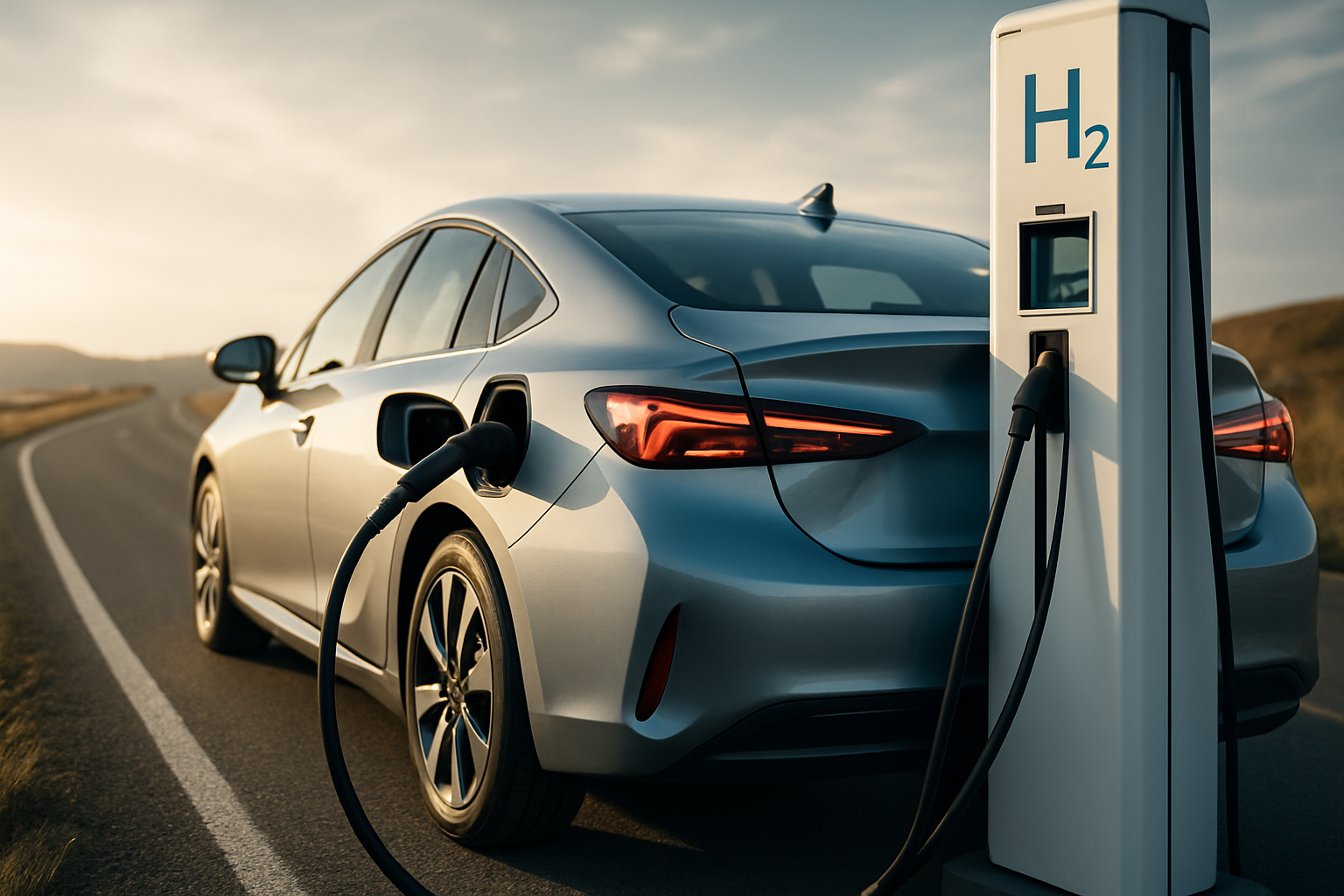The Resurgence of Hydrogen Fuel Cell Vehicles
A sleek, futuristic car glides silently down the highway, emitting nothing but water vapor. This isn't science fiction – it's the reality of hydrogen fuel cell vehicles, a technology experiencing a remarkable renaissance in the automotive world. As the industry grapples with environmental concerns and the search for sustainable alternatives, hydrogen-powered cars are emerging as a promising solution, offering the potential for zero-emission driving without the range limitations of battery electric vehicles.

In the early 2000s, hydrogen vehicles were touted as the future of transportation. However, high production costs, lack of infrastructure, and the rise of battery electric vehicles pushed hydrogen technology to the sidelines. Now, with advancements in fuel cell efficiency and a growing need for diverse clean energy solutions, hydrogen is making a comeback.
The Mechanics Behind the Magic
At the heart of a hydrogen fuel cell vehicle is the fuel cell stack. This component consists of multiple layers of electrodes and membranes where the electrochemical reaction takes place. Hydrogen gas is fed into the anode side of the fuel cell, where it’s split into protons and electrons. The protons pass through a membrane to the cathode side, while the electrons are forced to travel through an external circuit, creating an electric current.
On the cathode side, oxygen from the air combines with the protons and electrons to form water. This process occurs continuously as long as hydrogen and oxygen are supplied, providing a constant source of electricity to power the vehicle’s electric motor.
Infrastructure and Production: Overcoming Hurdles
One of the biggest challenges facing hydrogen fuel cell vehicles is the lack of refueling infrastructure. Unlike electric charging stations, which can be installed relatively easily, hydrogen fueling stations require specialized equipment and safety measures. However, several countries, including Japan, Germany, and parts of the United States, are investing heavily in expanding hydrogen infrastructure.
The production of hydrogen itself is another area of focus. While hydrogen is the most abundant element in the universe, it doesn’t exist naturally in its pure form on Earth. Currently, most hydrogen is produced through steam methane reforming, a process that still relies on fossil fuels. However, there’s growing interest in green hydrogen production methods, such as electrolysis powered by renewable energy sources like wind or solar.
Advantages Over Battery Electric Vehicles
While battery electric vehicles have dominated the zero-emission vehicle market in recent years, hydrogen fuel cell vehicles offer several distinct advantages. Perhaps the most significant is refueling time – a hydrogen vehicle can be refilled in a matter of minutes, similar to a conventional gasoline car. This is a stark contrast to the longer charging times required for battery electric vehicles.
Hydrogen vehicles also tend to have longer ranges than their battery-powered counterparts, making them particularly attractive for long-distance travel or commercial applications like trucking. Additionally, fuel cells don’t degrade in the same way batteries do, potentially offering a longer lifespan and more consistent performance over time.
The Road Ahead: Challenges and Opportunities
Despite the promising aspects of hydrogen fuel cell technology, several challenges remain. The high cost of fuel cell systems and hydrogen production are significant barriers to widespread adoption. Additionally, the energy efficiency of hydrogen vehicles is lower than that of battery electric vehicles, as the process of producing hydrogen, compressing it, and then converting it back to electricity involves energy losses at each step.
However, as technology advances and economies of scale come into play, these hurdles are gradually being overcome. Major automakers like Toyota, Hyundai, and Honda are continuing to invest in hydrogen technology, refining their fuel cell systems and bringing new models to market.
The future of automotive technology is likely to involve a mix of different propulsion systems, each suited to specific use cases. While battery electric vehicles may dominate personal transportation in urban areas, hydrogen fuel cell vehicles could find their niche in long-distance travel, heavy-duty vehicles, and areas where rapid refueling is crucial.
As we navigate the complex landscape of sustainable transportation, hydrogen fuel cell vehicles represent an exciting frontier. They offer a unique combination of zero-emission driving, quick refueling, and long range that could play a vital role in our transition to a cleaner, more sustainable automotive future. The resurgence of this technology serves as a reminder that in the world of automotive innovation, no idea is ever truly off the table – sometimes, the solutions of tomorrow are found by revisiting and refining the concepts of yesterday.





